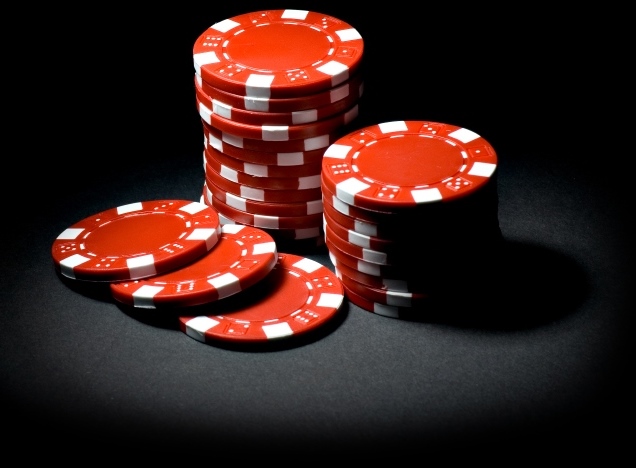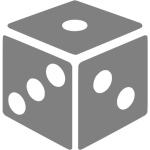- The Reviews
- UNIBET Review 2026
- MANSION Review 2026
- BETSAFE Review 2026
- BWIN Review 2026
- BETSSON Review 2026
- JETBULL Review 2026
- WILLIAM HILL Review 2026
- BET-AT-HOME Review 2026
- ZET Casino Review 2026
- CASINO.com Review 2026
- Mr GREEN Review 2026
- 888 Review 2026
- VEGAS CASINO ONLINE Review 2026
- LAS-VEGAS USA Casino Review 2026
- SUN PALACE Casino Review 2026
- ROYAL ACE Casino Review 2026
- PLANET 7 Casino Review 2026
- CLUB WORLD Casino Review 2026
- SILVER OAK Casino Review 2026
- Free Casino Games
US
- Best Online Casino Games Guide
- Choose Your Best Online Casino
- The Best Casino Games
- Online Card Games
- Best Online Machine Games
- Table Games
- Online Slots
- Complete Modern Online Blackjack Guide
- Free Blackjack Basic Strategy
- Simplified Blackjack Playing Strategy
- How to Play Blackjack Online Like Pros
- Advanced Blackjack Rules and Strategy
- Step-by-Step Blackjack Playing Procedures
- Blackjack Playing Options Guide
- Master Blackjack Card Counting
- Modern Blackjack Card Counters Challenge
- Which is the Best Blackjack Betting System?
- Nine-Count Blackjack Strategy Review
- Blackjack Myths and Errors
- Online Roulette
- Sportsbook
- Online Poker
- Online Video Poker
- Online Scratch Cards
- Online Bingo
- Online Baccarat
- Online Craps
- Asian Casino Games
- Online Keno
- Online Sic Bo
- Casino Bonuses
- Online Casino Reviews
- UNIBET Review, Casino, Sportsbook, Poker & Live Dealers
- BETSAFE Review, Casino, Poker, Live Dealers & Sportsbook
- MANSION Review, Casino, Sportsbook & Live Dealers
- BWIN Review, Sportsbook, Casino, Poker & Live Dealers
- BETSSON Review, Sportsbook, Casino, Live Dealers, Poker
- JETBULL Review -Casino, Sportsbook, Live Dealers
- BET_AT_HOME Review, Sportsbook, Casino, Poker, Live Dealers
- WILLIAM HILL Review -Casino, Sportsbook, Live Dealers, Poker
- ZET Casino Review
- Mr GREEN Review -Casino, Sportsbook & Live Dealers
- CASINO.com Review -Online Casino & Live Dealers
- Las-Vegas USA Casino Review
- Sun Palace Casino Review
- Royal Ace Casino Review
- Planet 7 Casino Review
- Club World Casino Review
- Vegas Casino Online Review
- Silver Oak Casino Review
- Free Casino Games
The Dealer is not Your Friend
Have you ever wondered why in most casino’s players are expected or even ordered to give a chip to the dealer on a straight hit?
Some players even like to buy themselves a false sense of security by over tipping the dealer; one of the most persistent myths around is dealers would be able to (with margin for error) target sectors, even pockets.
We’ll explore this myth using common sense. First of all, it’s clear for anyone to see the dealer is an employee of the casino. He or she is paid by the casino to operate the games and bring in the bacon for the casino: your chips. You might think the tips given to the dealers are divided fair and square amongst all dealers but using our inside source we know for a fact this is NOT the case in most European casino’s –we do not know about other continents, so please don’t ask.
What really happens is the ‘tip’ chips in the table boxes are gathered and then a complicated pyramid percentage structure is applied which involves dividing money between the casino itself –yes, you have read this correctly -, the pit bosses and the dealers. As a general rule of thumb: the lower you are on the food chain, the lower the percentage will be. The actual percentage of tips really going back to the dealers is only a fraction of the total amount and differs from venue to venue.
- Bonus Amount: $3,000 up to $10,000. The best daily bonuses on the internet.
- Games: An incredible number of slots, table games, and video pokers, including HTML5 games.
- Strong security protocols of 128-bit encryption
- Audited and guaranteed fair by TST
- Website: https://www.lasvegasusa.eu/casino/
- Established: 1999
- Software: Real Time Gaming (RTG)
- US and Canadians players supported
- Platforms Supported: Windows, Mac, iPhone, iPad, & Android.
- Type of Casino: Online & Instant or download.
- Free Slots Games: Yes
- Customer Support: 24/7 live chat support, as well as a toll-free phone number: +506-283-0061, and e-mail support
Write your review of Las-Vegas USA Casino
- Website: http://www.royalacecasino.eu
- Casino Type: download client, instant play, and mobile
- Software: Real Time Gaming (RTG)
- Owner: Emoney Processing Casinos LTD
- Established: 2009
- Casino Promotion: 100% Match Deposit Bonus up to $4,000, Daily and Weekly Bonuses
- Coupon Code: CASINO400
- Currencies: US$, Euros, Yen, Pounds, Bitcoin
- Mobile: both desktop and mobile compatibility
- VIP Program: 5 levels Available
- Support: World Class Support, 24/7 live chat & Toll-free phone number for USA and Canada
- Security: 128-bit SSL encryption
- Certified by: CDS (Central Disputes System)
- Languages: English
- License: Costa Rica
Write your review of Royal Ace Casino
- Bonus: 400% up to $10,000.
- Website: https://www.sunpalacecasino.eu/
- Software: Real Time Gaming (RTG)
- Deposit Methods: ClickandBuy, MasterCard, Money Order, Neteller, Visa Electron, instaDebit, Visa, MST Gift Card, Skrill, Bitcoin
- Withdrawal Methods: ACH, Cheque, Money Order, Neteller, Skrill
- Withdrawal Times: EWallets: 2-5 days, Credit / Debit Cards: 10-12 days, Bank Transfers: 7-12 days, Cheques: 21-28 days
- Pending Time: 3-7 days
- Withdrawal Limit: $5,000 per week
- Games: Incredible number of games of all types
- support: 24/7 through live chat, phone, or e-mail
- Support Response Time: 24 hours via email or Instant using Live Chat.
- Encryption: 128-bit SSL
- Audited and found fair by TST
- Languages: English.
- Progressive Jackpots: up to Million-Dollar.
- Restricted Countries: Bosnia, Costa Rica, Malaysia, Morocco, Netherlands, Russia.
Write a review of Sun Palace Casino
- Bonus: 320% Bonus + 45 Free Spins
- Casino Website: https://www.silveroakcasino.com/
- Casino Promotion: 320% Match Deposit Bonus up to $10,000 in 10 first deposits, up to $100 No Deposit Bonus, Weekly and Monthly Cashback, and much more.
- Casino Type: download client, instant play, mobile, and live dealers
- Software: Real Time Gaming (RTG)
- Live Casino: Available Live Dealers Casino
- Owner: Emoney Processing Casinos LTD
- Established: 2009
- Currencies: US$, Euros, Yen, Pounds, Bitcoin
- Mobile: both desktop and mobile compatibility
- VIP Program: 5 levels Available
- Support: World Class Support, 24/7 live chat & Toll-free phone number for USA and Canada
- Security: 128-bit SSL encryption
- Certified by: CDS (Central Disputes System)
- Languages: English
- License: Costa Rica
Write your review of Silver Oak Casino
- Bonus: First Deposit 350% Bonus + 25 Free Spins
- Website: https://www.planet7casino.com/
- Casino Type: download client, instant play, mobile, and live dealers
- Software: Real Time Gaming (RTG)
- Live Casino: Available Live Dealers Casino
- Owner: Emoney Processing Casinos LTD
- Established: 2008
- Casino Promotion: 200% Match Deposit Bonus up to $4,000, and much more.
- Currencies: US$, Euros, Yen, British Pounds, Bitcoin
- Mobile: both desktop and mobile compatibility
- VIP Program: Available
- Support: World Class Support, 24/7 live chat & Toll-free phone number for USA and Canada
- Security: 256-bit SSL encryption
- Certified by: CDS (Central Disputes System)
- Languages: English
- License: Costa Rica, Cyprus, the United Kingdom, and the Netherlands.
Write a review of Planet 7 Casino
- Bonus: Get 300% Match up to $3000 FREE Welcome Bonus
- Website: https://www.clubworldcasinos.com
- Software: Real Time Gaming (RTG)
- Mobile: Android, iPhone, iPad
- Casino Type: Download, Instant Play, Mobile
- Currency: US dollars
- Language: English
- License: Curacao
- Owner: Club World Casinos Group Casinos
- Established: 2005
- Audit: RTP Not publicly audited
- Currency: US dollars
Write a review of Club World Casino
- Bonus: Get 300% Match up to $3000 FREE Welcome Bonus
- Website: https://vegascasinoonline.eu/
- Established: 1999
- Software: Real Time Gaming (RTG)
- Currencies: US$
- US and Canadians players: supported
- Bonus Amount: up to $11,000 Match Bonus
- Platforms Supported: Windows, Mac, iPhone, iPad, & Android.
- Type of Casino: Download & Online Instant Play.
- Free Slots Games: Yes
- Owner: Main Street Vegas Group Casinos
- License: Costa Rica
- US Customer Support: (877) 691-5124
- Canada Customer Support: (888) 387-6717
- Email Address: [email protected]
- Live Chat: Yes
- Response Time: 24 hours via email or Instant using Live Chat.
- Languages: English.
- Progressive Jackpots: up to 1 Million-Dollar.
Write a review of Vegas Casino Online
The tipping ritual is a first illusion created towards the player
If you tip a person you expect the tip to go to the person who served you right?
Table dealers are forbidden by the management to keep personal tips: at all times they should be dropped in the box and a dealer who doesn’t stick to this rule will be fired and you can be sure they eye in the sky (the dark bulb you see in the ceilings of casinos) is watching.
Now, suppose a dealer would be able to target sectors: do you think a dealer would be working for long in a casino if he would favor the players?
The only way a dealer could gain a personal profit by influencing the game is by having an accomplice to lay out the bets, so afterwards the dealer and the accomplice could split the profits. This might work well for small amounts of money, IF it were possible, but even then it wouldn’t be long before casino security finds out if dealer A is spinning the ball, player A is winning most of the time.
Notice we did put ‘suppose’ before the last paragraph. In fact, we personally know an exdealer who gave his co-operation to this project and who has worked for several years in a casino, and when we asked him if a dealer would be able to target sections, he stated:
‘This is a myth deliberately kept alive because dealers know this will bring in the tips’.
Also, he didn’t know of one dealer who was able to deliberately influence the outcomes.
Let’s say you know for certain it wouldn’t make any difference if a blind man spins the wheel or a regular dealer: would you still be as willing to give tips to the dealer when your numbers show up? But, if players are convinced a dealer can influence the outcomes, players will be more eager to give nice tips, hoping the dealer will be more willing to hit there numbers.
If you are a regular casino visitor and you often see the same dealers, it’s only human you’ll tend to look for similarities in outcomes. When you see a certain number coming up three times or more in several consecutive spins, you might think this particular dealer fancies this particular number or sector. But, the fact is, even if a blind man would spin the wheel several numbers or sections will come up more than expected in the short run.
Casino Games Blog 2026
The Bitcoin Casino Guide
Investigate the Myth of Tipping the Casino Dealers
To seriously investigate the myth we would need a dealer who:
a) states he or she is able to target sections
b) will state clearly which sections he or she will be targeting BEFORE the experiment
Now, here comes the interesting part: obviously you should NOT do this experiment ‘in the short run’. Why not: because as we have seen earlier it would not be possible to make any distinction between deliberate targeting or only achieving the result by chance.
Suppose you are convinced dealer A is more likely to throw section A than B. Say this section is composed of 6 neighboring numbers.
The average frequency in which this section will turn (without applying any influence at all) up is 6/37 or 6/38. But, as we have seen earlier: standard deviation will cause this section to either turn up more or less than the expected average frequency in the long run. As a general rule of thumb, anything below 3 standard deviations would certainly not be good enough in the short run to state dealer A has any deliberate influence on the game because such a pattern could easily be created by chance as well. What does this mean: if dealer A would state he or she will be targeting a certain section, a hit on this section is not necessarily deliberate; the section might very well turn up more than once than expected in the short run by pure chance also.
Let’s say you are convinced that dealer A is more likely to throw a particular 6 number section in any part of the game:
Using the multiplication rule of probability, for an American wheel the probability any one of the numbers out of this 6 number section would turn up by chance in 10 consecutive throws is:
Attempt | Probability |
1 | 15,78947368 |
2 | 29,08587258 |
3 | 40,28284006 |
4 | 49,71186532 |
5 | 57,65209711 |
6 | 64,33860809 |
7 | 69,96935418 |
8 | 74,7110351 |
8 | 78,70402956 |
10 | 82,06655121 |
Interesting to know is, after 4 attempts, the dealer would already have a 57 % probability chance he would hit any out of 6 numbers in 5 attempts WITHOUT deliberate intent what so ever. So, if you walk into a casino thinking dealer A is more likely to throw a particular section, just remember in any 5 consecutive throws the probability one of the numbers out of this particular section might show up is already better than 50% (without any influence at all).
So, this is hardly proof at all: if any dealer would tell you in the course of 100 spins he’ll have an average hit rate of 1 out 5 for hitting a six number section, you can tell him plainly he’s a con artist because he has a better than 1 in 2 chance for pulling this one of anyway.
That’s what might explain why we didn’t find one dealer prepared to take our experiment, not even when at one time we offered a 1000 euro for a potential challenger who would only have to concentrate on aiming balls all day. Let’s face it: it would have been easy money if you would have the skill. The downside being: if the challenger didn’t pull it of, he wouldn’t get paid for wasting our time and money to rent a full size low profile scalloped wheel.
Now, we mentioned the word ‘wheel’. We surely do not underestimate the power of human will to practice a skill no matter how difficult, nor do the casinos. This might explain why wheel manufacturers started developing ‘low profile’ wheels which are now most common to be found in respectable casinos. Low profile wheels increase the scatter of the ball on impact. In some venues the balls themselves are even regularly switched:
To the ordinary player they might look the same but the diameter or weight is slightly different which will produce more or less scatter on impact. So, even when a dealer would have the tremendous skill to aim approximately towards a certain section, the velocity, the weight, the diameter, the position and the angle of the ball on impact, will determine the amount of scatter: the ball could come to a nearly dead halt or happily scatter around several sections further before loosing enough momentum to finally drop dead.
The skill itself would not only involve roughly aiming towards a section, but even the need to control the position of impact on a particular pocket, because this would determine the amount of scatter that will be produced. A drop from striking a diamond on the downward spiral, straight on the edge of a particular pocket would produce a totally different amount of scatter as opposed to the ball skimming the edge of a pocket on impact without hitting a diamond. To make matters even worse when it comes to influencing the game, major wheel manufacturers also have introduced ‘scalloped’ pockets. A scalloped pocket is constructed like a deep spoon: even when the ball drops straight in, due to the velocity and the shallow angle of the pocket the ball will wobble and might bounce out.
Below you can see a video of the John Huxley Starburst wheel. Notice the pocket edges are rounded, as opposed to old-style wheels which had deep pockets with straight edges.
More information can be found on http://www.tcsjohnhuxley.com Also other major manufacturers like Cammegh http://www.cammegh.com have introduced the low profile wheels.
If you are not convinced yet: summarized we believe at very best on old-style wheels (deep, not scalloped pockets) a very skilled dealer might have influenced the course of the game deliberately – however, NOT one statistically tested recorded document of a successful attempt exists. On today’s modern style wheels we believe deliberate aiming and consistently succeeding to influence the outcomes are out of the question.
We would have preferred to test a dealer on this particular subject, but as mentioned earlier, an ex-dealer we personally knew, already denied the possibility, nor did he know of a dealer who was able to do this. After insisting we only found one candidate dealer for our challenge but this one backed off very quickly when we introduced him to our statistician. Probably the contender found it easier to convince the layman of his skills (which brings in the tip chips), but even if you only know the basics of stats and probability you know that a hit rate of 1 in 5 for a 6 sector pocket simply doesn’t prove anything in the short run: such a pattern could appear easily by chance as well.
As we have chosen the route of common sense: suppose such an extraordinary skilled dealer would exist. Wouldn’t you find it strange in this world of numerous tv game shows, documentaries and literature to be found on any human skill, there is to our knowledge NOT ONE officially recorded and successful attempt of a dealer hitting a certain section in a significantly higher rate than expected over a long amount of trials? A (retired) dealer who would have this skill would surely have turned up by now in the presence of a statistician to prove himself, if only for historical sake.
Does this evidence exists: no, and internationally there must have been over 1.000.000 dealers by now (amateurs or professionally, retired or still active).
Even for the casinos, it is good business if the public thinks a dealer can influence the game. As a player you will be more likely to tip and as such a casino doesn’t have to pay decent basic wages. This is the ethical side to the question: casinos are undoubtedly a multi-million-dollar revenue business, so we could expect even the employees on the base of the food chain to get a fair share of the profit in wages. But, in reality many dealers are depending on tips to secure their modest wages (if you compare it to what the management is making). So you can be certain if a player believes the dealer might hit a certain section the dealer will be the last to state otherwise: even if the dealer only receives a fraction of the chips in the tips box, it’s the butter on his bread.
Besides casinos wouldn’t have to pay decent wages to dealers which are more consistent with the large profits of the casino, there is also a mathematical reason why players are expected to tip the dealer on a straight hit. In the chapter on the house-edge, we’ve analyzed that a player is not rewarded fairly for the risk he or she is taking. If you have a chance of 1 out of 37 or 38, you should receive a net reward of 36 or 37 chips, but on both occasions, your net gain is only 35 chips. On top of this, on a straight hit, most casinos have installed a ‘good conduct’ or ‘player etiquette’ policy you should give one chip to the dealer on a straight hit.
If the player agrees with this, the mathematical house edge is even increased:
French Roulette : (34/1) – (36/1) * 1/37 = -0,054054054 * 100 = – 5.40 %
American Roulette : (34/1) – (37/1) * 1/38 = -0,078947368 * 100 = – 7.89 %
Notice the first part of the bracket would be your actual gain on a hit: you receive a 35 chips payout of 35 chips for a straight hit, but if you are expected to give one chip to the dealer for each straight hit the house edge increases dramatically from 2.70 % to 5.40 % in French roulette; on American roulette the house edge has now become a staggering 7.89 % instead of 5.26 %. Both are devastating for the bankroll of the player in the long run. You might have wondered where all your chips went in the last year: well, the expected dealer tips are a major contributor.
Not only does the tipping policy provide the casino a good excuse for why they shouldn’t pay decent basic wages to the dealers, but the expected tipping also increases the house edge even further. For the casino this is a win-win situation: it reduces the cost of the tax on basic staff wages, and in the long run, the chances for the player are even worse.
This is the real story from the inside, which is why our dealer finally quit his job and decided to co-operate in this project.
This situation can only continue as long as players are not informed of what is really going on: the first protest of players would be to simply switch to automated mechanical roulette so the player isn’t longer expected to help the casino pay for the dealer (which the player already does simply by gambling on negative expectancy games), or simply refusing to tip unless the casino executives show you a document in writing.
In the last case you might start a scene to find out if the dealer is really getting the chips he or she is obliged to drop in the tip box or only a very small fraction. Inform other players about the knowledge you have just gained. After all, if you tip a person you do this for providing good service and you expect this particular person to receive the tip in full: this is not the case in the large majority of all the (European) casinos.
In Europe, recently dealers went on strike in a certain venue because their wages had dropped to below minimum wage while the casino itself was producing a wealthy profit. It the kind of industry you are dealing with.
Was This Helpful?
Recommend us on Facebook










